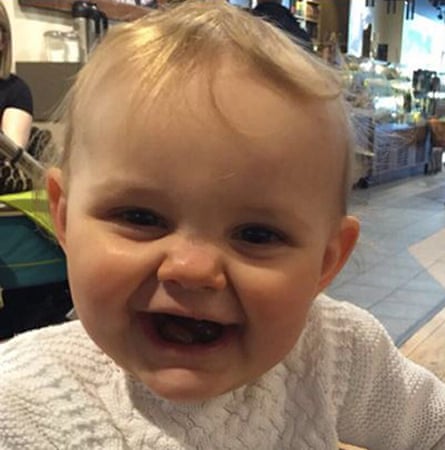The grandmother of Elsie Scully-Hicks, the 18-month-old girl murdered in Cardiff last year by one of her two adoptive fathers – who was convicted last month – had been rejected in her attempt to become her granddaughter’s court-appointed special guardian.
Despite having been in regular contact with her granddaughter while she was in foster care, and being deemed suitable to look after two of Elsie’s older siblings, Sian O’Brien said – in her victim impact statement read out in court – that she was told by the Vale of Glamorgan council that she wouldn’t be able to cope with Elsie too.
We don’t yet know – we may never know – why the judgment was made that Elsie should not be brought up by her grandma. But the details of this case raise wider questions about official and societal attitudes to the lives of children who do not live with their birth parents.
Over the past decade, adoption has been the politically trumpeted and heavily resourced “go-to” solution for vulnerable children. David Cameron described the low number of babies adopted as a “scandal” in his 2011 speech to the Conservative party conference, and later
pushed for the adoption process to be speeded up.
In reality, though, adoption has never been a likely prospect for any child over the age of about four or five or for sibling groups, who often end up scattered in long-term foster care. Since two high court judgments in 2013 restated the stringent conditions under which adoption orders could be made, adoption numbers have gone down. As a result, in October, the national Adoption Leadership Board acknowledged that it needed to broaden its remit to looking at different forms of “permanency” for children.
Kinship care, along with foster care, is the obvious answer: about 180,000 UK children are already living with a “kinship carer”. The first study of the effects of this, carried out by the charity Grandparents Plus, showed that children’s outcomes were significantly better – by a number of objective measures including GCSE results – than those in foster care.
The law is clear: if a support package – financial, practical, therapeutic – means a child who has been taken into care can be adequately looked after by relatives, then the “nothing else will do” test required for an adoption against a birth family’s wishes, has not been met and that support must be offered.
One might think that financial support would be automatic for a relative taking on the care of a young child who would otherwise cost the state a small fortune in fostering fees. Not so. Although the profile of children in kinship care might well be the same as those who end up being formally “looked after”, the support they get depends not on their need but on their legal status – are they living with relatives on a care order, and is the relative an approved foster carer? Only registered foster carers are entitled to an allowance, and not all kinship carers can meet the local authority criteria.

This doesn’t mean these relatives aren’t allowed to look after children who may have been neglected or abused. It just means they’re not entitled to any financial or other help. In turn, this means that though there may be a will, there may not be a way for family members to step in, and a child’s human right to live within the family they were born into can end up being severed.
One couple attending a kinship carers’ support group in the north-east of England told Grandparents Plus that they allowed their grandson to be adopted because they felt they couldn’t raise another child – they were already looking after his two siblings – without securing a council house with another bedroom. The local authority refused.
Even a special guardianship order in court is no guarantee of help – some local authorities offer an allowance, others don’t. And kinship carers often find they have to battle through a fog of misinformation: a grandmother in Gloucestershire fighting to care for her infant grandchild told a family court in October that children’s services wrongly informed her that having savings meant she’d get nothing to help her look after the baby. That’s why it should be a statutory requirement that money and practical help follow these children’s needs, whether or not they’re on a care order or their relatives tick enough boxes.
We don’t know what kind of help was on offer to Elsie’s grandmother – it’s to be hoped that children’s services were willing to dig deep if it could have meant the little girl – called Shayla before her adoptive parents renamed her – could grow up with her birth relatives. From the point of view of a cash-strapped council, it is undeniably the case that adoption is cheaper than long-term foster care or any other solution that involves continued state involvement. From the point of view of a child, though, kinship care may be preferable. It is wrong if the lack of state support for kinship carers is taking that option away or plunging these vulnerable children and their selfless relatives into poverty.









